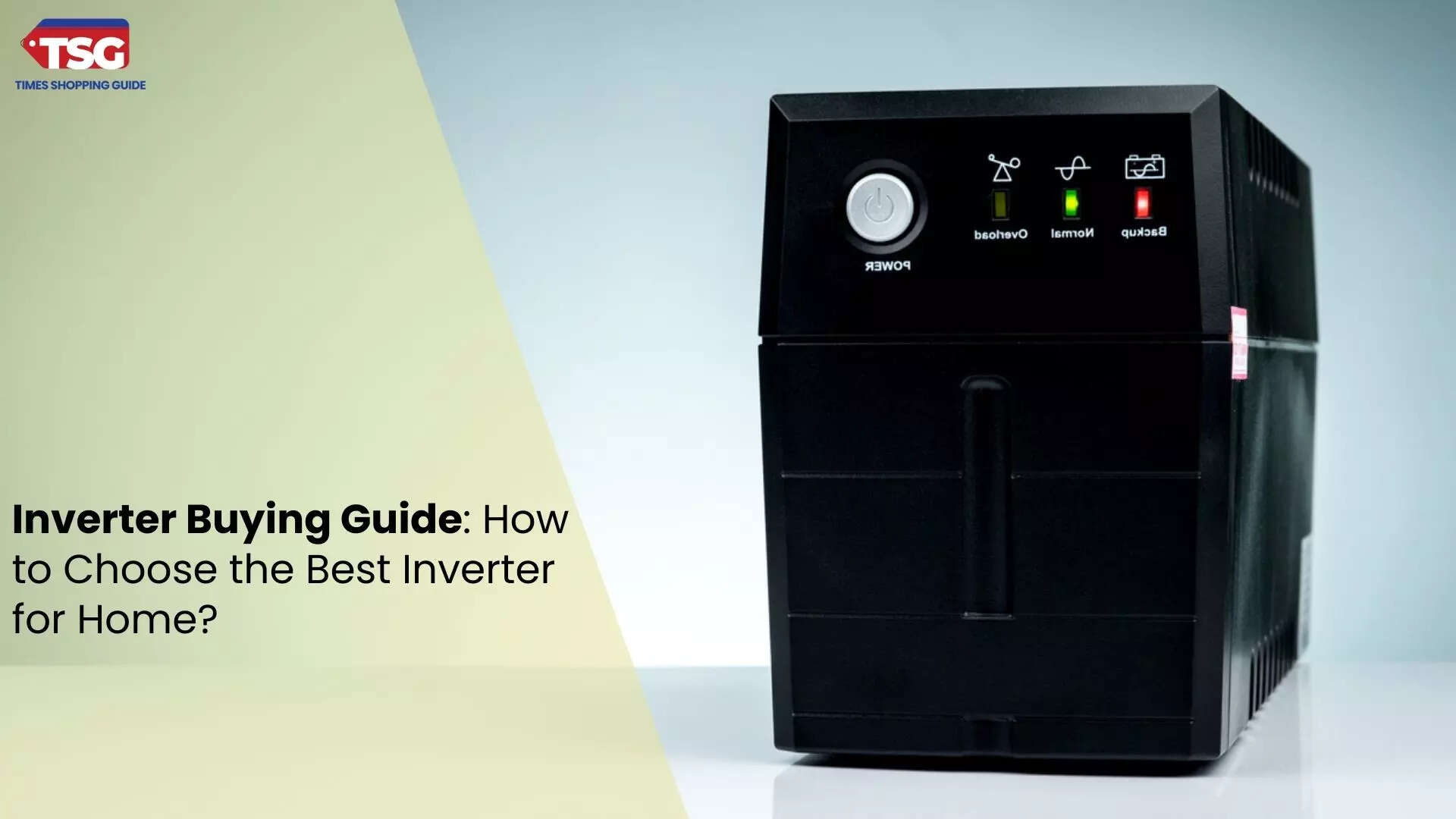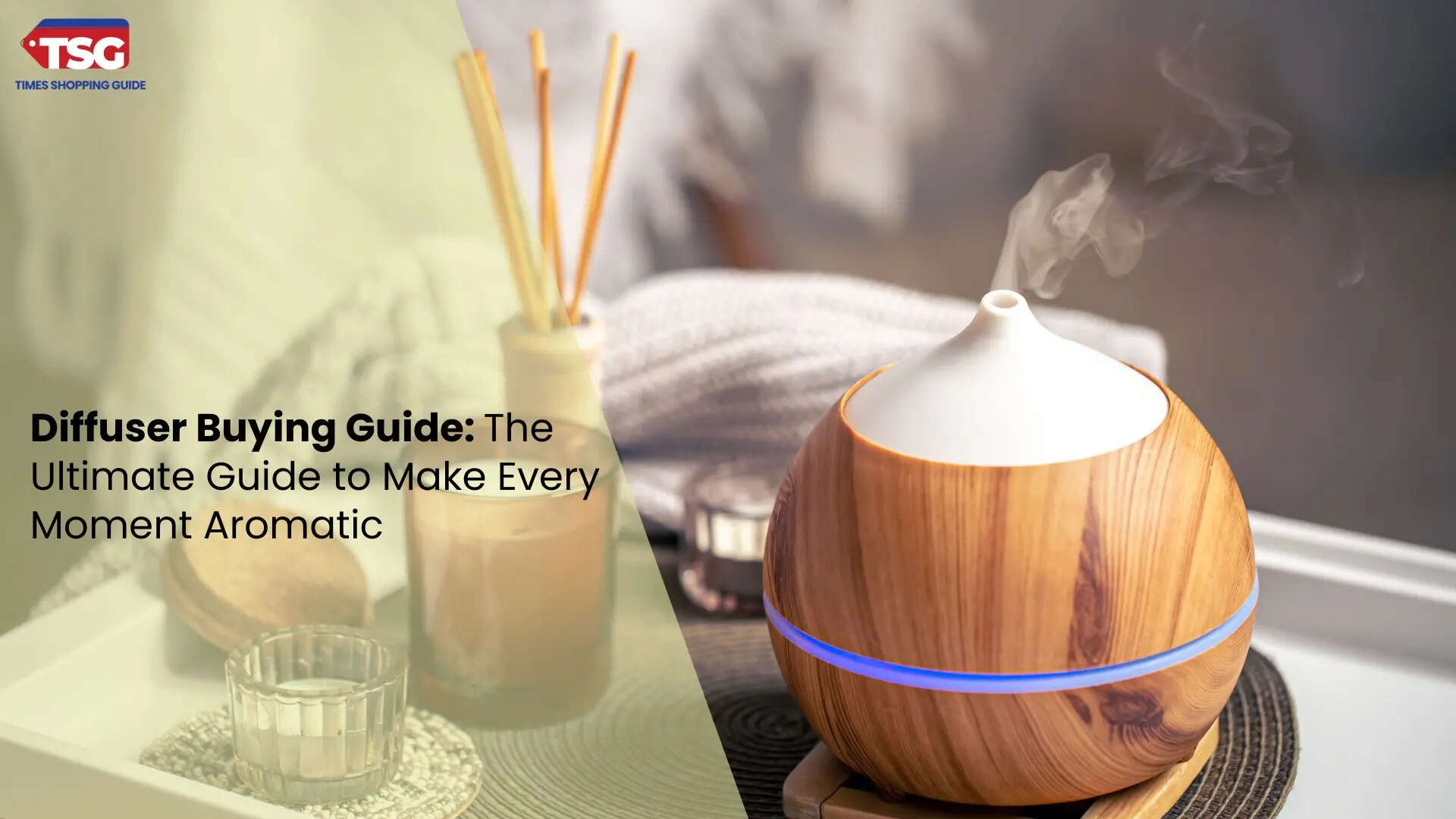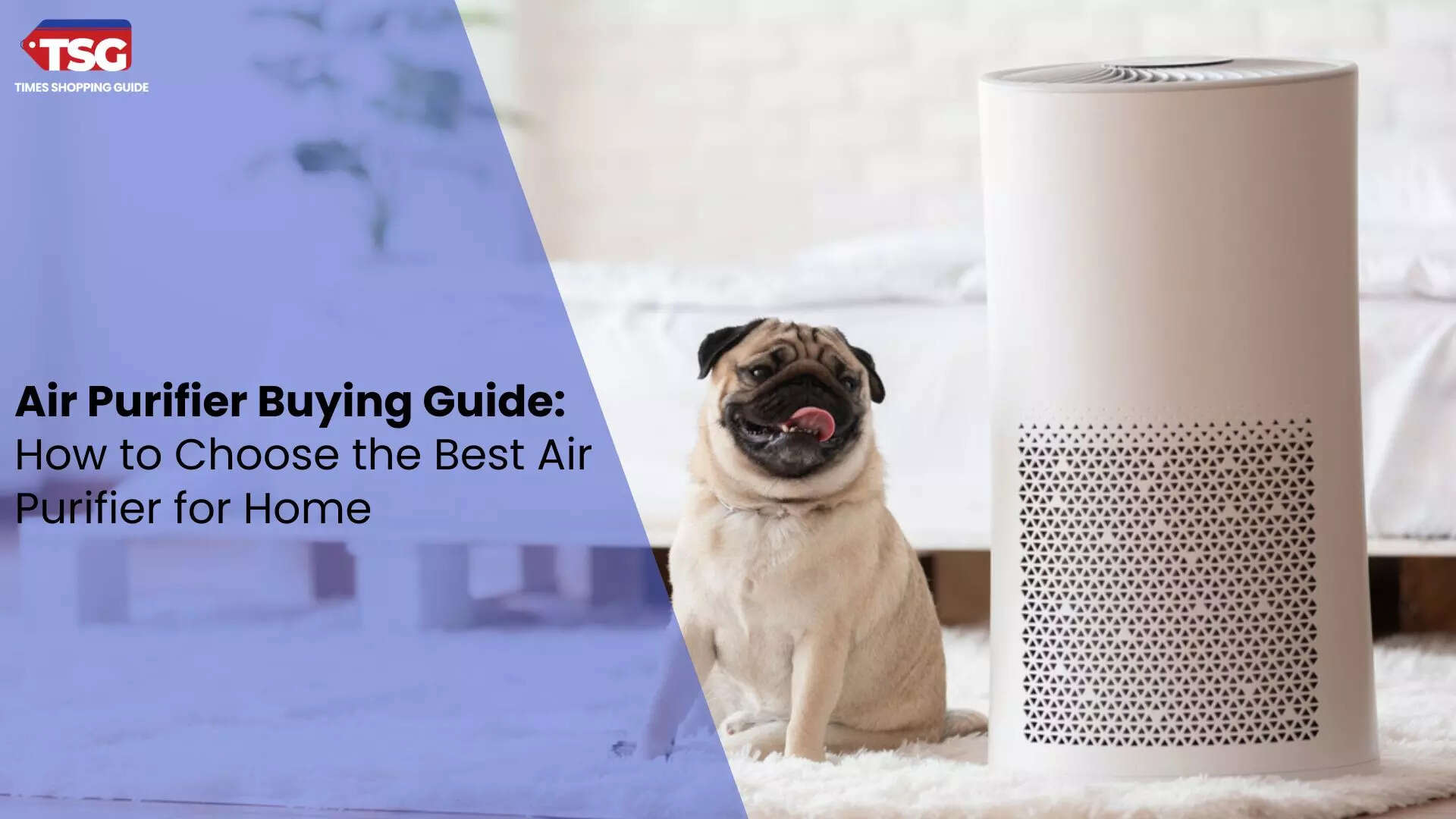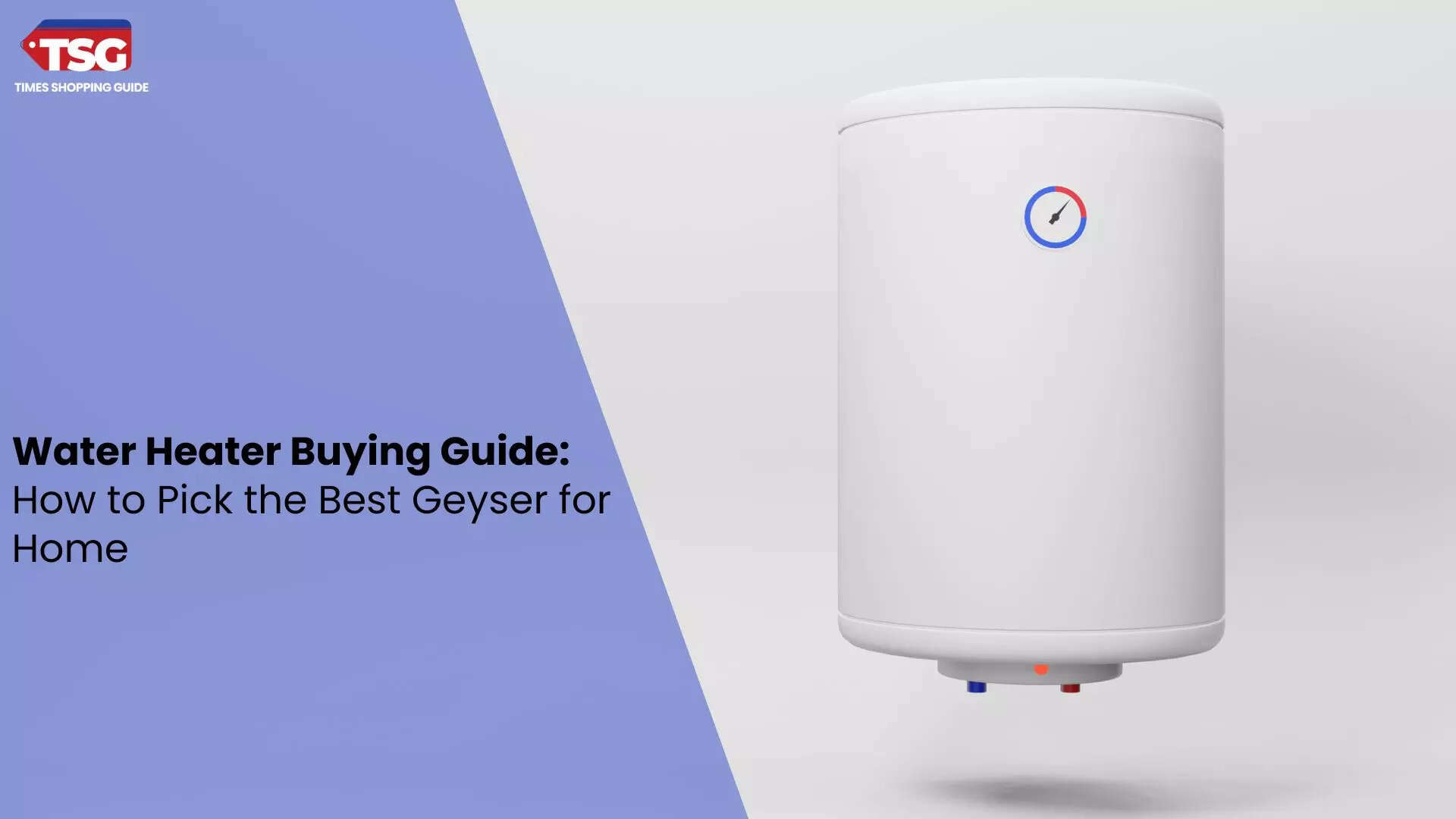- home
- appliances
- buying guide
- inverter buying guide how to choose the best inverter for home
Inverter Buying Guide: How to Choose the Best Inverter for Home?
Choosing the best inverter for your home is crucial for ensuring an uninterrupted power supply during outages and optimising energy efficiency. This comprehensive guide will explore various types of inverters for homes, key features, and factors influencing your choice. We'll also explore understanding your power needs, comparing different inverter technologies, evaluating brands and models, and analysing cost versus benefits.

This guide will help you navigate the complexities of inverter technology, enabling you to make an informed decision.
Inverter Buying Guide: Look for Power Needs
Before selecting the best home inverters, it’s crucial to assess your power needs:- Determine Total Load: Calculate the total wattage of all appliances and devices you wish to power. This includes lighting, refrigeration, air conditioning, and other essential electronics.
- Identify Critical Appliances: During power outages, prioritise crucial appliances such as refrigerators, medical equipment, or essential electronics.
- Estimate Usage Duration: Consider how long you need to run these appliances during an outage. This will help you determine the battery capacity required.
Inverter Buying Guide: Types of Inverters
There are several types of inverters available, each with distinct features:- Square Wave Inverters: These are the most basic and inexpensive type. They produce a square wave output suitable for simpler devices but may not be compatible with sensitive electronics.
- Modified Sine Wave Inverters: These are more advanced than square wave inverters and can handle a broader range of appliances. They produce a modified sine wave, better for sensitive electronics but still not as clean as a pure sine wave.
- Pure Sine Wave Inverters: These inverters produce a smooth, clean sine wave, mimicking the power supplied by utility companies. They are suitable for all types of appliances, including sensitive electronics like computers and medical equipment. Although more expensive, they offer the highest efficiency and reliability.
Inverter Buying Guide: Key Features to Consider
When choosing the best inverter for home, consider the following features:- Capacity: Measured in watts, the capacity should be sufficient to handle your home’s total load. Inverters come in various capacities, so select one that matches your power needs.
- Efficiency: Look for inverters with high-efficiency ratings. Efficiency refers to how well the inverter converts DC to AC power. Higher efficiency means less energy loss and lower electricity bills.
- Battery Compatibility: Ensure the inverter is compatible with your existing batteries, or choose one with an integrated battery system. Different inverters for home are designed to work with specific types of batteries, such as lead-acid or lithium-ion.
- Transfer Time: The transfer time is the duration of an outage during which the inverter switches from utility power to battery power. A shorter transfer time ensures a seamless transition, minimising appliance disruption.
- Display and Controls: An intuitive display and control panel can make managing your inverter easier. Look for features like LCD screens showing real-time performance metrics and battery status.
- Safety Features: Safety is paramount. Ensure the inverter has built-in protections against overloads, short circuits, and overheating. Features like automatic shutoff and surge protection add an extra layer of security.
Inverter Buying Guide: Check the VA Rating
When buying an inverter for home, checking the VA (Volt-Ampere) rating is crucial. The VA rating indicates the inverter's capacity to handle the total load of your appliances. Ensure the inverter’s VA rating exceeds the combined wattage of all devices you plan to connect. This ensures efficient performance and prevents overloading. Calculate your total power needs for an accurate assessment and select an inverter with a VA rating that comfortably accommodates your requirements, providing reliable and uninterrupted power.Inverter Buying Guide: Comparing Inverter Technologies
When comparing inverter technologies, consider the following:- Inverter vs. Generator: While both provide backup power, inverters are typically quieter and more fuel-efficient than generators. Generators, however, may be more suitable for higher power demands or extended outages.
- GridTie vs. OffGrid Inverters: Gridtie inverters are used with solar power systems connected to the utility grid, allowing you to sell excess power back to the grid. Off-grid inverters are used in standalone systems that rely solely on battery storage.
- Hybrid Inverters: Hybrid inverters combine features of grid-tie and off-grid inverters. They can work with battery storage and the utility grid, offering flexibility in various power scenarios.
Inverter Buying Guide: Evaluating Brands and Models
Researching reputable brands and models can significantly impact your inverter’s performance and reliability. Consider:- Brand Reputation: Established brands often offer better quality, customer support, and warranty services. Look for brands with positive reviews and a proven track record in the industry.
- Model Specifications: Compare different models within a brand to find one that best suits your needs. Pay attention to specifications such as power output, efficiency, and additional features.
- Warranty and Support: A good warranty indicates the manufacturer’s confidence in their product. Ensure the inverter comes with a comprehensive warranty and accessible customer support.
Inverter Buying Guide: Price vs. Benefits
Assess the cost versus benefits of different inverters:- Initial Cost: Higher capacity and pure sine wave inverters are more expensive. Balance your budget with the features and capacity you need.
- Long-Term Savings: Investing in a high-efficiency inverter can result in long-term savings on energy bills and maintenance costs. Consider the inverter’s lifespan and energy efficiency when evaluating its overall cost-effectiveness.
- Installation and Maintenance: Factor in the installation cost and ongoing maintenance requirements. Some inverters may require professional installation, while the homeowner can install others.
Inverter Buying Guide: Installation and Maintenance
Proper installation and maintenance are crucial for optimal inverter performance:- Professional Installation: While homeowners can install some inverters, professional installation ensures the system is set up correctly and adheres to local electrical codes.
- Regular Maintenance: Periodic maintenance, such as checking battery levels, cleaning connections, and inspecting for wear, can prolong the life of your inverter and ensure reliable operation.
FAQs
1. What to look for when buying an inverter?
When buying the best inverter for home, consider its capacity (VA rating), efficiency, battery compatibility, safety features, and transfer time. Ensure it meets your power needs, is highly reliable, and protects against overloads and surges. Check for brand reputation and warranty to ensure long-term performance and support.
2. Which type of inverter is best for a home?
A pure sine wave inverter is often the best choice for a home. It produces clean, stable power similar to the utility grid, making it suitable for all appliances, including sensitive electronics. Although more expensive, it ensures optimal performance, reduces interference, and enhances the longevity of your devices and electronics.
3. How many watts is a good inverter?
A good inverter for a typical home ranges between 1,000 to 5,000 watts, depending on your power needs. For essential appliances, 1,000 to 2,000 watts may suffice, while larger homes with multiple devices require 3,000 to 5,000 watts to ensure a reliable and uninterrupted power supply.
Disclaimer: Times Shopping Guide is committed to bringing you the latest products from the best brands. Our selection is based on market research and positive consumer feedback. Times Shopping Guide is also a part of an affiliate partnership. In line with this, we may receive a portion of the revenue from your purchases. Please note that the product prices are subject to change based on the retailer's deals.








